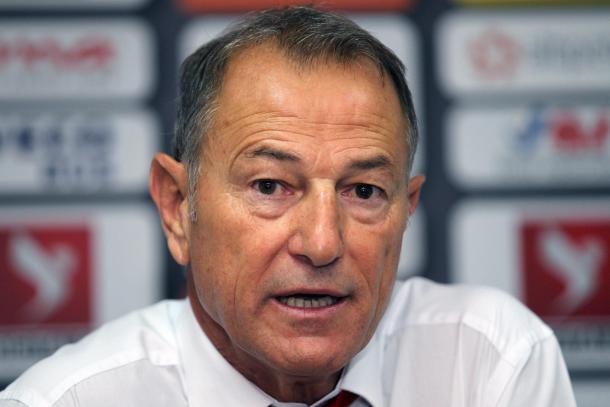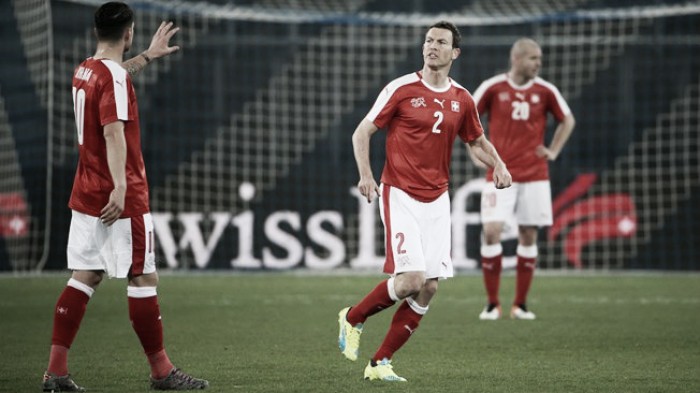Switzerland know that a victory in their first game of Euro 2016 against Albania will go a long way in determining their qualification for the knockout round of the competition.
Sitting in Group A, along with Romania and France, Rossocrociati will see Saturday afternoon’s fixture as the slightly least challenging, although Albania do pose a few threats – clearly exemplified by them finishing ahead of Denmark and Serbia in qualifying Group I.
How do the opponents play?
Head coach, Gianni De Biesa, has introduced a defensive style of football since he took the job in 2011, almost historically typical of his native Italy. De Biesa’s approach has turned the tiny Balkan nation into a solid European outfit, although the lack of star individuals could hinder their chances of qualifying for the knockout round of the competition.
In a season dominated by the underdogs, Albania are no strangers to upsetting the odds. The Red and Blacks - as they are known back at home - defeated eventual Group I winners Portugal in their opening qualifying game, before beating France by a 1-0 scoreline in a friendly just under twelve months ago.
Despite not having a depth of talent at their disposal, Albania boast a couple of good players. Full-back Elseid Hysaj is widely-regarded as their best individual, while captain Lorik Cana also adds vast experience to their ranks, having turned out for clubs such as Paris Saint Germain, Marseilles, Galatasaray and Lazio.

How should Switzerland approach the game?
Head coach Vladimir Petkovic’s side appear to be lacking in confidence, although a spirited late victory in their latest friendly against Moldova may have come at the right time. Switzerland have been in inconsistent form since qualifying for the tournament, losing four of their last seven games – most notably against the Republic of Ireland and Slovakia.
Although Albania are notoriously good defensively, breaking the Red and Blacks down early often opens the floodgates. Switzerland will need to start on the front foot and an early goal would be beneficial.
Group A opponents Romania proved the weaker teams will be difficult to break down this summer, even for the strongest of sides, and Albania will be exactly the same. Unlike Romania did in their narrow 2-1 defeat against France on Friday night, Albania will defend deeper and not allow Switzerland to get in behind their back four or within the space between the defence and midfield. This means the Swiss players may have to be patient and not get frustrated, and a lack of discipline has often been noted among Switzerland’s players – particularly new Arsenal signing, Granit Xhaka.
How will Switzerland line up?
Petkovic is likely to start with a 4-3-3 formation for the game, with Borussia Monchengladbach goalkeeper, Yann Sommer, likely to retain his usual place in the Swiss goal. Former Gunners defender Johan Djourou will start at centre-back and his probable partner will be Basel’s Michael Lang, who will have to take the place of experienced defender Philippe Senderos, who was excluded from the squad. Another Arsenal link will see Ricardo Rodriguez start at left-back having been linked with a big-money move to the Emirates stadium in the last couple of weeks.
Xhaka is likely to start in midfield along with former Manchester City man Gelson Fernandes, who now plays his football with Rennes. Xhaka's brother, Taulant Xhaka, could start for Albania. Watford’s Valon Behrami could make up the three-man midfield and would be given a slightly more expressive role due to Xhaka and Fernandes being more defensively-minded.
Another Premier League link will see Stoke City winger Xherdan Shaqiri start out wide with either Breel Embolo or Admir Mehmedi on the other side of the pitch. Haris Seferovic will potentially be the man Petkovic decides to allow spearhead the attack, with goals needed if Switzerland are going to reach the knockout stages of the European Championships for the first time in the tournament’s history.










































